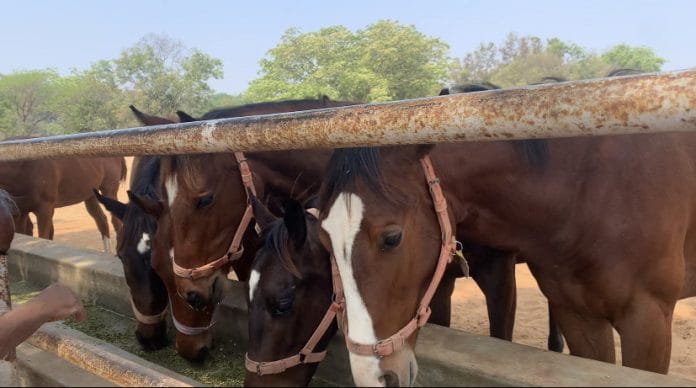New Delhi: In a significant achievement for India’s animal health sector, the Indian Council of Agricultural Research-National Research Centre on Equines (ICAR-NRC Equine) in Hisar has been granted World Organisation for Animal Health (WOAH) Reference Laboratory status for Equine Piroplasmosis. The Department of Animal Husbandry & Dairying (DAHD) under the Ministry of Fisheries, Animal Husbandry and Dairying facilitated this recognition.
This prestigious designation highlights India’s commitment to bolstering its scientific capabilities and diagnostic infrastructure, playing a crucial role in the global fight against equine piroplasmosis, a tick-borne disease affecting horses, donkeys, mules, and zebras. The laboratory will join a select network of institutions recognized for their expertise in diagnosing and researching this disease.
India’s equine population, estimated at around 0.55 million according to the 20th Livestock Census, plays a vital role in various livelihoods and industries. Uttar Pradesh, Rajasthan, Gujarat, and Haryana have the highest concentrations of horses, ponies, donkeys, and mules, with around 0.34 million horses and ponies, 0.12 million donkeys, and 0.08 million mules. This recognition underscores the significance of ICAR-NRC Equine’s contribution to global animal health. The laboratory will be responsible for providing advanced diagnostic services, sharing technical expertise, and leading research initiatives on equine piroplasmosis internationally.
This achievement marks a significant step for India, as it becomes the fourth laboratory in the country’s Animal Husbandry sector to receive WOAH Reference Laboratory status. The other three laboratories are ICAR- National Institute of High Security Animal Disease, Bhopal (Avian Influenza); Veterinary College, Karnataka Veterinary Animal and Fisheries Sciences University, Bangalore (Rabies); and ICAR- National Institute for Veterinary Epidemiology and Disease Informatics, Bangalore (PPR and Leptospirosis).
Equine piroplasmosis, caused by the parasites Babesia caballi and Theileria equi, poses a serious threat to the health and productivity of equines. With a reported seroprevalence rate of 15-25% in India, reaching up to 40% in certain regions, the disease has a significant economic impact. In high-risk regions, prevalence can reach 40%, causing significant economic losses through decreased productivity, health deterioration, and restrictions on equine movement and export. The DAHD has prioritized NRC Equine as India’s National Reference Center for equine diseases in recognition of the need for stringent control and early diagnostics.
The official announcement of ICAR-NRC Equine’s new status will be made at the 92nd WOAH General Session and World Assembly of Delegates in May 2025.
Also Read: Chamurthi horses main attraction at Himachal trade show






